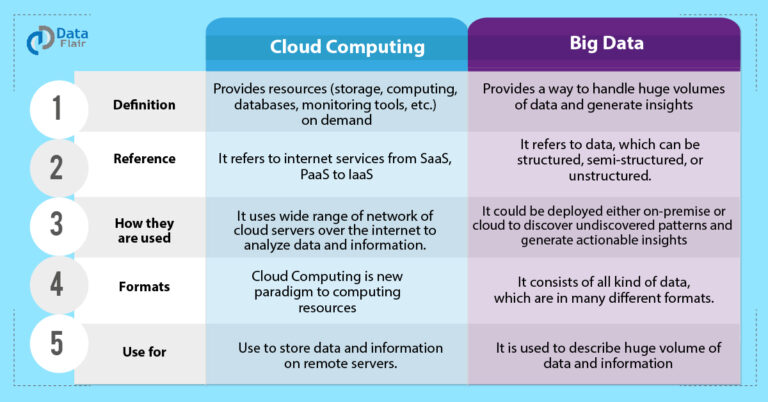What Are The Challenges Of AI In Healthcare?
The application of artificial intelligence (AI) in healthcare is one of the most promising developments in the field. AI has the potential to help improve patient outcomes, reduce costs, and make healthcare more efficient. However, there are a number of challenges associated with AI in healthcare that must be addressed for it to be successful. These challenges include data availability and accuracy, privacy and security, and regulatory issues. Additionally, AI-driven healthcare solutions must be tailored to the specific needs of the healthcare system, and implementation must be carefully planned and managed to ensure successful outcomes.
Overview of Artificial Intelligence (AI) in Healthcare
Artificial Intelligence (AI) is quickly becoming recognized as a powerful technology with the potential to revolutionize the healthcare industry. AI is being used to develop new treatments, improve diagnosis accuracy, and reduce medical costs. However, the implementation of AI in healthcare is not without its challenges. This article will provide an overview of the challenges of AI in healthcare and how they can be addressed.
The first challenge is the cost of AI technology. AI technology can be expensive to purchase and implement, and it requires significant training and setup. This can be a major barrier for smaller healthcare organizations, who may not have the resources to invest in AI. Additionally, AI technology requires a certain level of expertise to use properly, and many healthcare organizations struggle to find qualified personnel to manage their AI systems.
Another challenge is the complexity of AI systems. AI systems can be difficult to understand and interpret, and it can be hard to determine whether they are making accurate decisions. This can lead to errors and delays in diagnosis and treatment, potentially resulting in poor patient outcomes. Additionally, AI systems may contain bias, either intentional or unintentional, which can lead to inaccurate results.
Finally, AI systems can be vulnerable to cyber attacks, and healthcare organizations must ensure that their AI systems are secure. Data security is an essential component of any AI system, and healthcare organizations must ensure that their data is protected from unauthorized access.
Overall, AI in healthcare presents many challenges, but it also offers great potential for improving patient care. With proper implementation and security measures, AI can become an invaluable tool in the healthcare industry.
Potential Benefits of AI for Healthcare
The potential benefits of Artificial Intelligence (AI) for healthcare are vast, and its adoption is already beginning to revolutionize the healthcare sector. AI technology has been used to help diagnose and treat diseases, automate administrative tasks, enhance patient experience, and streamline research and development. With AI, healthcare professionals can focus more on their patients, while AI can help them process large amounts of data quickly and accurately. AI can help by providing personalized patient care, helping to identify and monitor disease progression, and providing early diagnosis of conditions. Additionally, AI can be used to identify potential drug interactions and to provide better drug recommendations. AI-powered robots can help with surgery, and AI-based systems can be used to monitor vital signs and alert clinicians if something goes wrong. AI can also be used to reduce medical errors, and reduce wait times. By harnessing the power of AI, healthcare professionals can provide better care for all patients.
Challenges of AI in Healthcare
As Artificial Intelligence (AI) continues to become more integrated into healthcare, it presents a range of opportunities for medical professionals and patients alike. However, with this integration comes a variety of challenges. From data privacy to ethical considerations, AI in healthcare is not without its dilemmas. In this blog, we will discuss the major challenges of AI in healthcare and how those challenges can be addressed.
Data privacy is one of the most pressing challenges of AI in healthcare. As AI systems become more sophisticated, the amount of data they access and store increases exponentially. This data is sensitive and must be kept secure, as a breach could lead to serious consequences for patients. Additionally, AI systems can be vulnerable to malicious attacks or misuse. To address this challenge, healthcare organizations must implement robust security measures to protect patient data.
Ethical considerations are also a major challenge of AI in healthcare. From diagnosis to treatment, AI systems can be used to make decisions that impact the lives of patients. These decisions must be made carefully, taking into account the ethical implications of each decision. It is also important to ensure that AI systems are designed and implemented in a way that is transparent and accountable to all stakeholders.
Finally, AI in healthcare can also be challenging in terms of cost. AI systems can be expensive to develop and maintain, and they require specialized staff to keep them running. This can be a barrier for healthcare organizations who may not have the resources to invest in AI technology. To address this challenge, healthcare organizations should look for ways to reduce the cost of implementing AI technology, such as leveraging open-source solutions or collaborating with other organizations.
In conclusion, AI in healthcare can provide a range of benefits for medical professionals and patients, but it also presents some unique challenges. Data privacy, ethical considerations, and cost are all major challenges that must be addressed in order for AI to be successfully implemented. By taking the time to understand these challenges and explore solutions, healthcare organizations can ensure that they are getting the most out of AI technology.

Current Applications of AI in Healthcare
AI in healthcare has already begun to revolutionize the industry, with a wide range of applications already in use. From image-based diagnostics to smart chatbots for patient support, AI is quickly becoming a valuable tool for healthcare providers. However, there are still a number of challenges to overcome before AI can reach its full potential.
AI-based image diagnostics are becoming increasingly popular as a way to identify diseases and medical conditions from images, such as X-rays and CT scans. However, this technology still has a long way to go before it is reliable enough to replace human doctors. AI-driven diagnostics also face the challenge of being able to accurately identify diseases and conditions that are not easily visible on images.
Chatbots have also been widely adopted by healthcare providers to assist patients in navigating their care and answer basic questions. While this technology has been successful in providing basic support, it still has difficulty understanding more complex medical queries.
Another challenge for AI in healthcare is the lack of data available to train the algorithms. AI systems need large amounts of data to accurately identify patterns and make reliable decisions. Healthcare providers often have difficulty accessing useful data due to privacy concerns, which limits the potential of AI in healthcare.
Overall, AI in healthcare is a promising technology, but there are still a number of challenges to be addressed before it can reach its full potential. Healthcare providers must take steps to ensure the data they use is secure and help to develop AI-based diagnostics that can reliably identify diseases. Additionally, chatbots must be further developed to be able to better understand complex medical queries.
Regulatory and Privacy Considerations for AI in Healthcare
With the increasing use of AI in healthcare, many challenges have arisen in terms of regulation and privacy. As AI technology evolves, many ethical considerations are being raised surrounding the use of AI in healthcare. There is a great need for healthcare professionals to understand the implications of using AI and the potential risks associated with it.
The implementation of AI in healthcare requires the compliance of regulatory and privacy standards. Regulatory standards and privacy laws often have different requirements for the use of AI in healthcare, which can be difficult to understand and comply with. With regulatory standards in place, healthcare organizations must ensure that AI systems are secure and meet the necessary requirements for data protection and privacy.
Privacy concerns are another important consideration when it comes to AI in healthcare. As AI technology advances, it can be used to collect and store vast amounts of patient data. This data can be used by healthcare organizations for various purposes, such as research or providing personalized patient care. However, with the potential to store and access patient data comes the risk of privacy violations. Healthcare organizations must ensure that all patient data is kept secure and confidential.
Overall, the use of AI in healthcare can be beneficial for both healthcare providers and patients. However, there are many challenges that must be addressed in order to ensure the safe and ethical use of AI in healthcare. Healthcare organizations must ensure that they comply with regulatory and privacy standards, as well as take the necessary steps to protect patient data and privacy.
Implications of AI in Healthcare
As AI technology continues to develop, it is becoming more integrated into the healthcare system. AI has the potential to revolutionize the healthcare industry, but it also presents some unique challenges. In this article, we’ll discuss the implications of AI in healthcare and the challenges that come with its implementation.
AI in healthcare has the potential to improve patient outcomes by making treatments more efficient and accurate. AI can also be used to analyze patient data in order to detect potential problems and provide early intervention. However, AI also poses several challenges for healthcare providers.
One of the main challenges is the potential for data breaches. AI systems require large amounts of data to function properly, and this data must be kept secure and confidential. If data is leaked, it could have serious repercussions for patients and healthcare providers alike. Additionally, AI systems may be vulnerable to malicious attacks, which could lead to serious security issues.
Another challenge of AI in healthcare is the cost of implementation. AI systems require sophisticated hardware and software, and the cost of these systems can be prohibitively expensive for some providers. Additionally, AI systems require ongoing maintenance and upgrades, which can add to the cost.
Finally, AI systems can lead to ethical issues. AI systems can be designed to make decisions based on data, but this data may contain biases and errors. This could lead to the system making decisions that are not in the best interests of patients.
In conclusion, AI in healthcare presents both opportunities and challenges. While AI has the potential to revolutionize the healthcare industry, it also presents several unique problems that must be addressed. Healthcare providers must ensure that AI systems are secure, cost-effective, and ethical in order to ensure the best possible outcomes for their patients.
FAQs About the What Are The Challenges Of AI In Healthcare?
1. What kinds of challenges does AI pose to healthcare?
AI poses multiple challenges to healthcare, such as data privacy and security, regulatory approval, and potential ethical issues. AI also requires an immense amount of data to be meaningful, which may be difficult to obtain, especially in the healthcare sector. Additionally, AI can be expensive to implement and maintain.
2. How can AI be used to improve healthcare?
AI can be used to improve healthcare in a variety of ways, such as by automating and streamlining administrative tasks, helping to diagnose diseases more accurately, and providing personalized treatments. AI can also be used to analyze large amounts of data to identify trends and patterns that can help inform decision-making.
3. Is AI safe for use in healthcare?
AI is generally considered to be safe for use in healthcare, as long as it is properly implemented and monitored. It is important to ensure that data used to train AI models is accurate and up-to-date, and that the algorithms used are properly tested and validated. Additionally, it is important to ensure that the AI models do not have any biases or flaws that could lead to incorrect decision-making.
Conclusion
The potential of AI in healthcare is tremendous, but the challenges of AI in healthcare are significant. AI systems must be carefully designed, implemented, and monitored in order to ensure that they are effective and accurate. Additionally, healthcare organizations must ensure that patient data is secure and privacy is protected. Finally, AI technologies must be regulated to ensure that they are not causing harm or bias. With the proper implementation, AI in healthcare can become a powerful tool that will revolutionize the healthcare industry.




